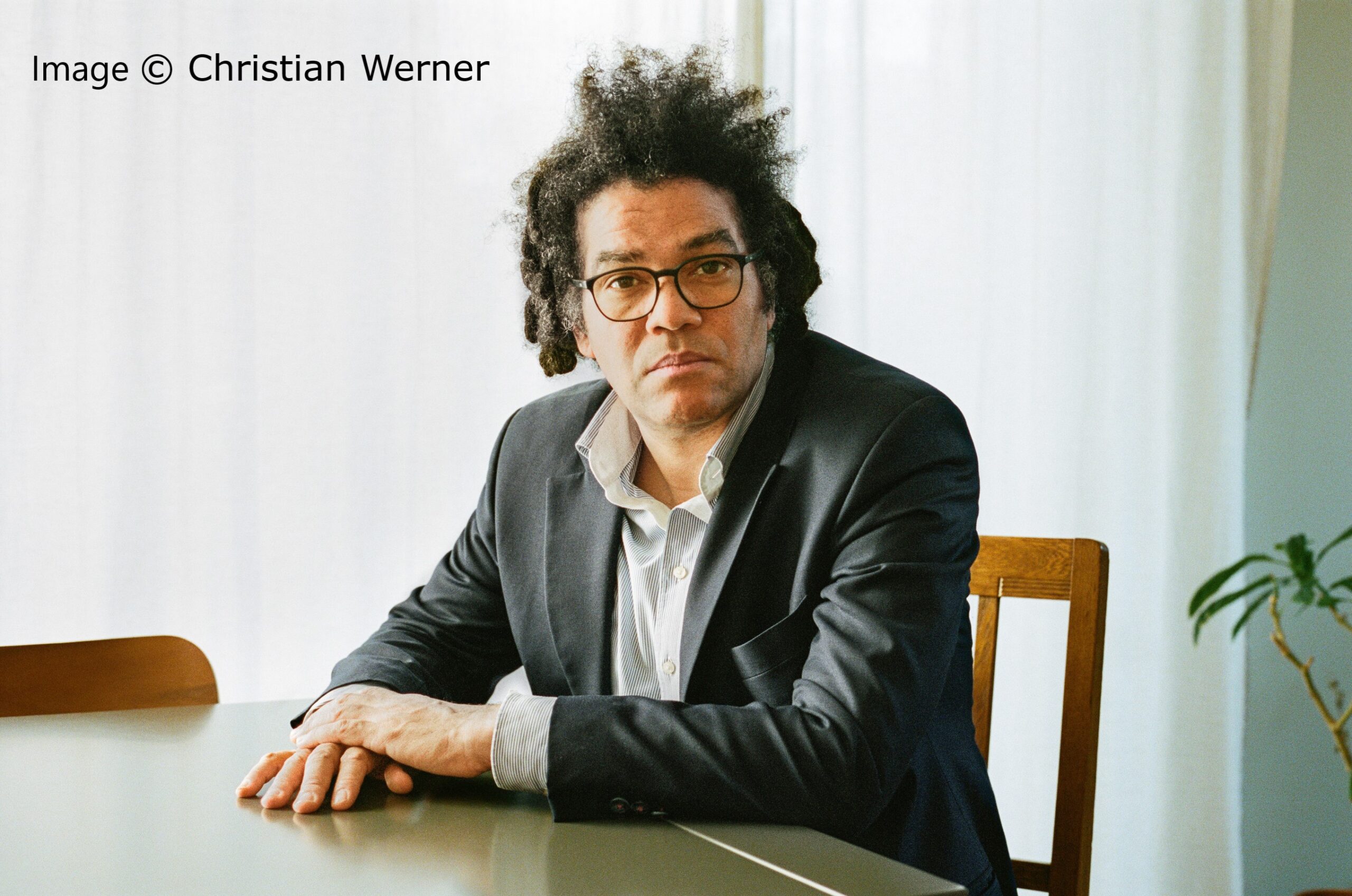Sarah Hemens interviews Ijoma Mangold, author of compelling memoir of growing up different, The German Crocodile. In the book, Iljoma Mangold, one of Germany's best literary critics, remembers his youth in 1970s Heidelberg and the new Federal Republic, and momentous visits in early adulthood to the USA and Nigeria.
Congratulations on such a beautiful piece of writing. Was it a book you always hoped you would write?
Not at all. As I began to write, I had a completely different book in my head, one about my mother. It turned out to be a book about both my mother and my absent father who returned to Nigeria when I was one. I didn’t meet him until I was 22. But that is the joy of the writing process: it develops its own momentum which you can happily give in to.
Can you tell us a little about the writing process?
I think the initial trigger was my mother’s death: it sparked so many memories. Memories of my childhood that, up to that point, I didn’t even realise I had. Beautiful, joyful memories. From there, the need grew to embark on a search for this lost time. I am a sentimentalist when it comes to the past… As I arrived back in my childhood, I noticed there was an empty hole which I needed to explain to the reader. Why it was only ever my mother who was present, never my father. As I began to explain why there was no father, the book took a different direction.
Your book is not only out in the world in German, but now in English too. How do you feel reading and hearing your own ideas and story in translation?
It’s exhilarating, but also strange. My English isn’t the best and when I read Ruth’s wonderfully flowing translation, there were some words I don’t even know. Doesn’t that seem crazy? I don’t understand my own text! But experiencing such an incredible sense of self-estrangement is just priceless.
Did you have much contact with the translator, Ruth Ahmedzai Kemp, during the process or since then?
Yes, and her questions about the text were so intelligent and sensitive that I knew straight away that she had really understood the book. A moving feeling.
What has surprised you about the reaction to the book in the UK?
How perfectly it fits with the UK discourse on biracial experiences.
Why do you think it was important to publish this book in English?
Because it is not just the traditional, large colonial powers, like England and France, that have an abundance of post-colonial stories, in the broadest sense, but these stories differ from country to country.
Who else writing in German today needs to be translated into English and known to a wider audience?
Botho Strauß, Leif Randt, Tereza Mora, Eva Menasse, Rainald Götz. Fortunately, Christian Kracht has already been translated.
What do you wish international audiences understood better about contemporary German-language writing?
That is a difficult, really tricky question. I’ll try to answer as follows: I think many German writers try to write according to the standard narrative aesthetics of the US market so they can be understood on an international level. That then makes it difficult for literature that is distinctively German, despite the fact that it is those books that are currently the stand-out works in German literature. But we shouldn’t complain; at least Thomas Bernhard and W.G. Sebald were able to bring their very unique styles to the international stage.
New Books in German recommends literature for translation into English. Are there any of our current selections that you have enjoyed recently and feel English-language readers might too?
Lots. Alongside Angelika Klüssendorf, I would also particularly recommend Eva Menasse’s novel Dunkelblum (Darkenbloom) – although that will be a real challenge for the translator because the novel contains Austrian dialect throughout.
Thank you so much for being generous with your time and for such interesting answers.
Interview translated by Claire Storey www.clairestoreylanguages.co.uk
The German Crocodile, by Ijoma Mangold, translated by Ruth Ahmedzai Kemp, is out now with DAS Editions.
Ijoma Alexander Mangold is his full name; he has brown skin and dark curly hair. Today one of Germany’s best literary critics, Ijoma remembers his childhood, his teenage years and his early adulthood in this compelling coming-of-age memoir of growing up different in 1970s Heidelberg, in the USA as the German Wall fell, and as a young adult in the new Germany.
Mangold explores many existential questions in this lively narrative; How does a boy cope with an absent father? What was it like to grow up ‘bi-racial’? Was he an opportunist, a master adaptor who had over-assimilated? What is the relationship between race and class? And what is more unusual in Germany: having brown skin or a passion for Thomas Mann and Richard Wagner? Ijoma Mangold shares his story with its dramatic twists and turns, not forgetting the surprises, he uncovers about himself along the way.
Smart, reflective (…) You read this like you read literary fiction: gripped, at times emotional.
Claudius Seidl, Frankfurter Allgemeine Sonntagszeitung
Listen to publisher Gersy Ifeanyi Ejimofo and translator Ruth Ahmedzai Kemp discuss the journey of translating and publishing the book in English.
Click through to more information about the book on the Waterstones website or on bookshop.org
About New Books in German
Find out more about our work to promote German language literature for translation into English
Find Funding
Discover more about the guaranteed support for translation into English
News
Delve into articles and interviews about books, publishers, translators, authors and the German language literary field.


